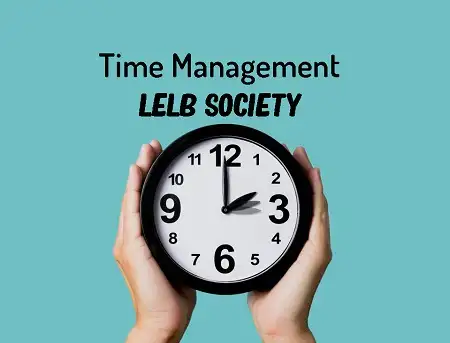IELTS Listening Practice Time Management IELTS Listening Practice Time Management About this activity This activity is labeled round table by Dr. Hariri, the creator and administrator of LELB Society. This activity is on the premise of Flipped Learning, according to which the students watch a video before the class, carry out research into the selected theme, and prepare themselves for an informed discussion in the class. This activity is on the basis of both synchronous and asynchronous computer-mediated communication (CMC), according to which the students are also encouraged to be active even before the class. In this flipped classroom activity, the students are encouraged to utilize the comment form at the bottom of the post to to exchange their questions, findings, and experiences with each ...
Home » Listening Practice in English » IELTS Listening Practice Time Management

IELTS Listening Practice Time Management
Updated: by Dr. Mohammad Hossein Hariri Asl
Time to Read: 5 minutes | 329 Views | 9 Comments on IELTS Listening Practice Time Management
Share This Post
About the Author
Dr. Mohammad Hossein Hariri Asl is an English and Persian instructor, educator, researcher, inventor, published author, blogger, SEO expert, website developer, entrepreneur, and the creator of LELB Society. He's got a PhD in TEFL (Teaching English as a Foreign Language).
Number of Posts: 4242



4. What is hyperbolic discounting effect?
…the hyperbolic discounting effect
Thank you for performing self-assessment.
Hyperbolic discounting is a cognitive bias where people tend to prefer smaller, immediate rewards over larger, delayed rewards. This effect reflects our tendency to discount the value of future benefits in favor of immediate gratification, often leading to decisions that prioritize short-term gains at the expense of long-term outcomes. For example, someone might choose to spend money on a spontaneous purchase rather than saving it for a future goal, even if the future reward is substantially greater.
3. What is your personal ideas about the usage of index cards for time management?
Frankly, I found it too ridiculous because first of all, If you cannot memorize your tasks, it means that you do not care about them seriously. Moreover, cell phones have been created to curtail the use of papers.
Using index cards for time management can be highly effective and practical. They provide a tangible way to organize and prioritize tasks, making it easier to stay focused and keep track of progress. You can dedicate one card per task or project, jotting down important details, deadlines, and steps required to complete each task. This method not only helps in breaking down large tasks into manageable chunks but also allows for easy reorganization and visual tracking of progress. The physical act of handling cards can also create a sense of accomplishment as you move completed tasks out of the way. Overall, index cards offer a simple, flexible, and efficient tool for enhancing productivity and managing time effectively.
2. What is the meaning of “drop in”?
“Drop in” is a phrasal verb that means to visit someone informally and without prior arrangement. It’s often used when someone stops by a place for a short, casual visit. For example, you might say, “I decided to drop in on my friend after work,” meaning you visited your friend without planning it in advance.
1. What is the special benefit of using calendars or personal organizers to manage your time?